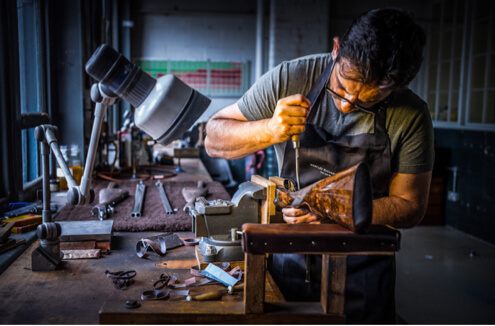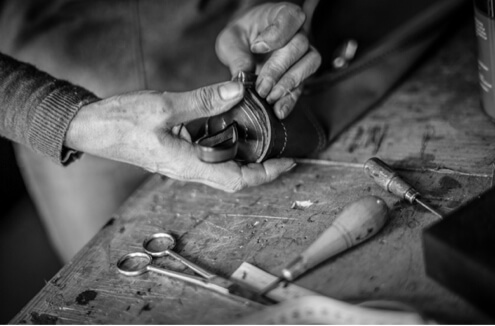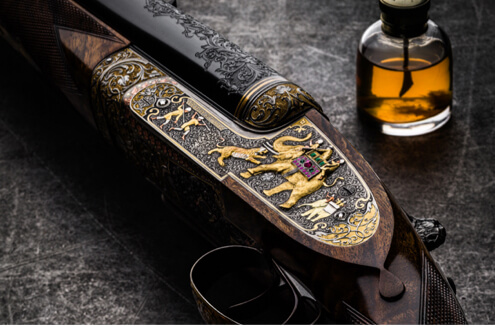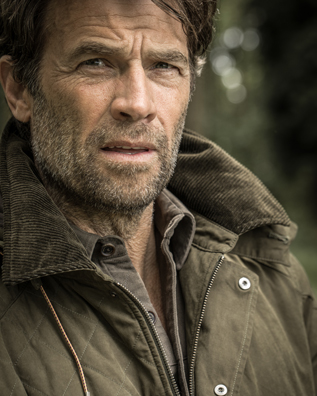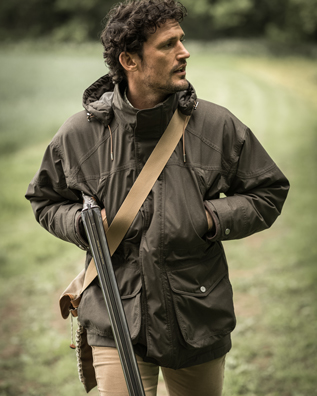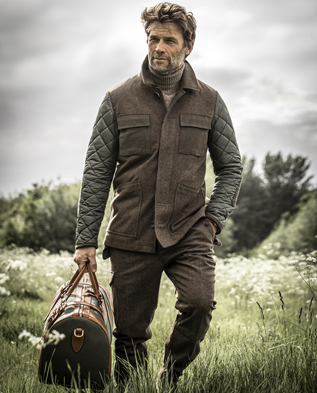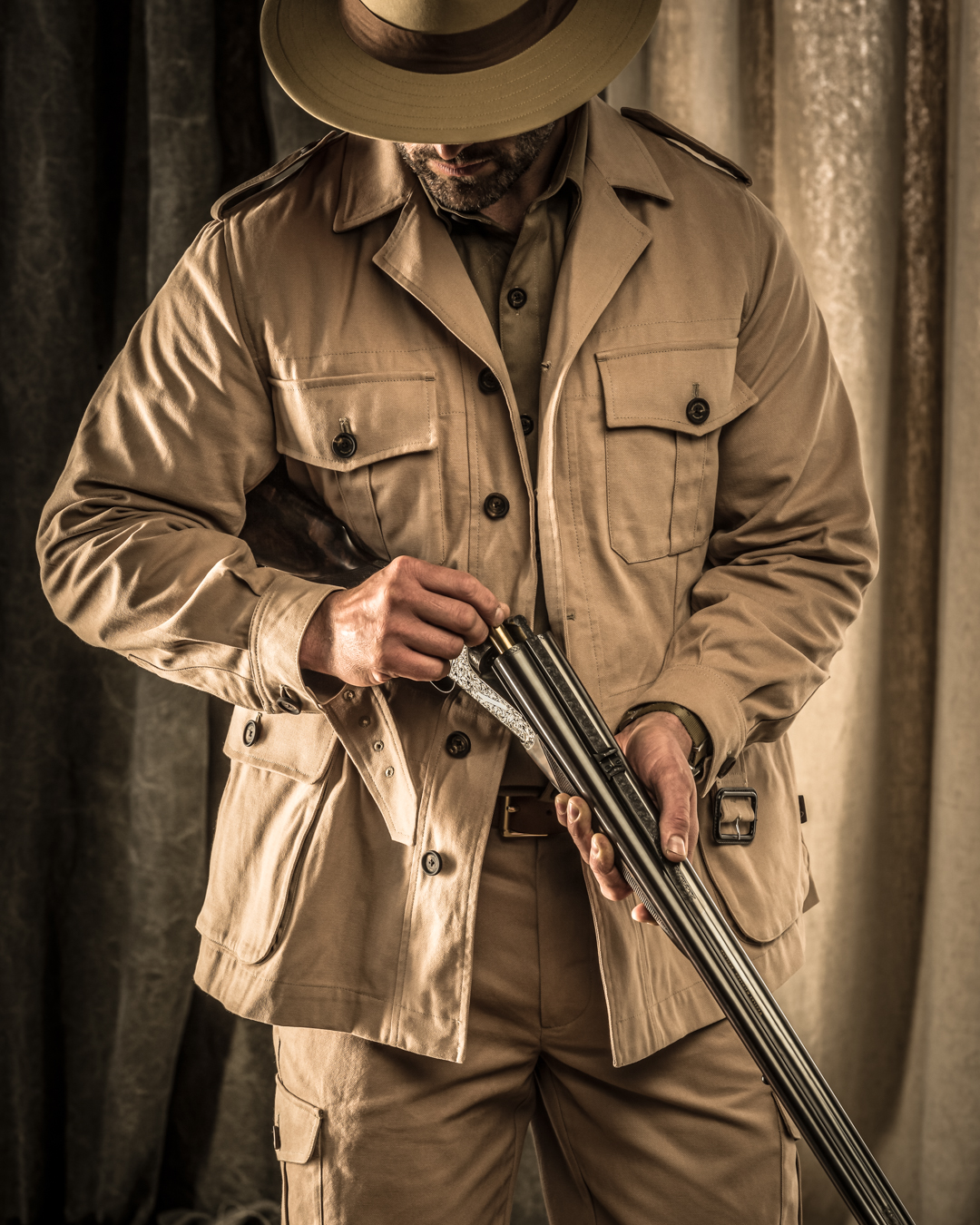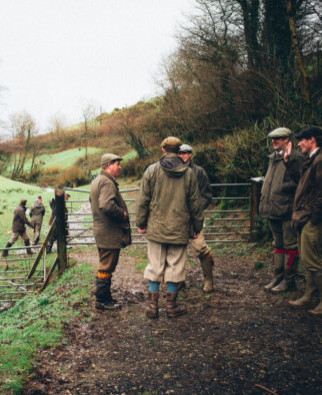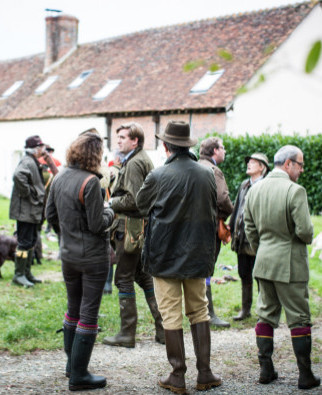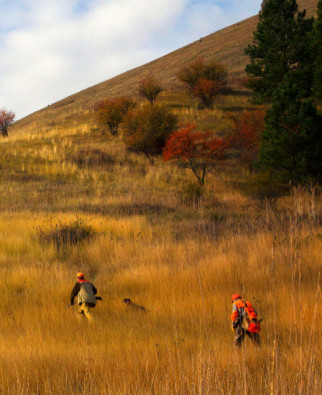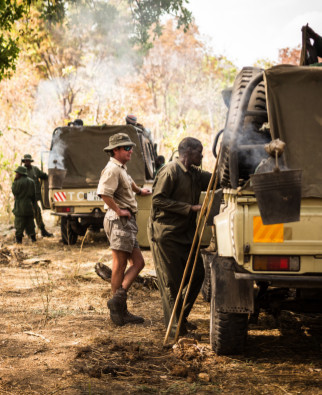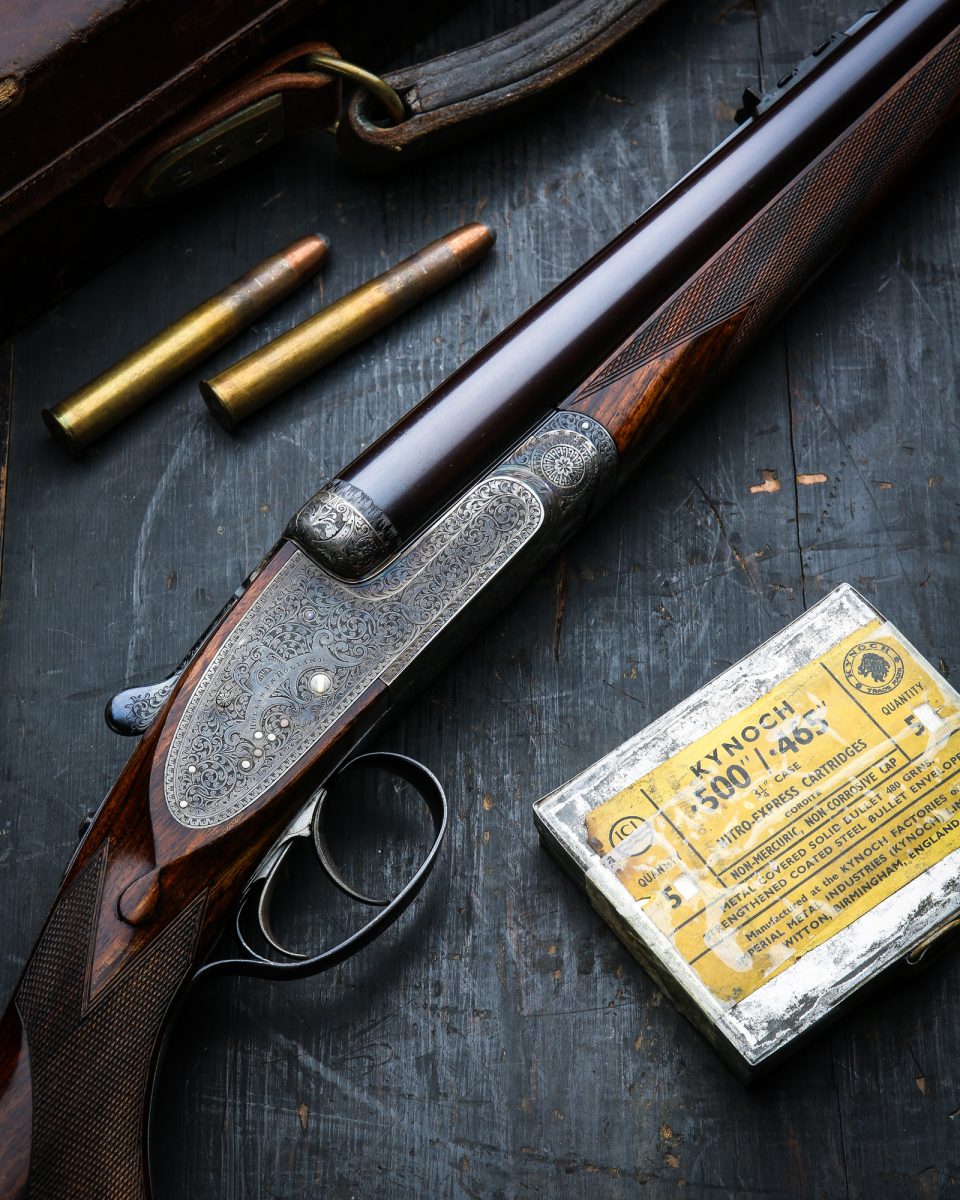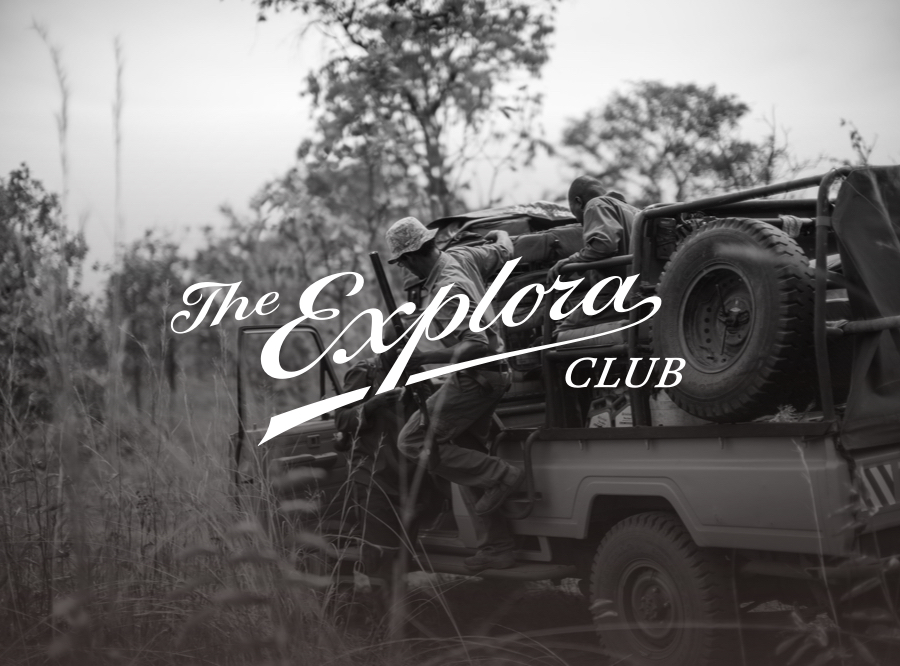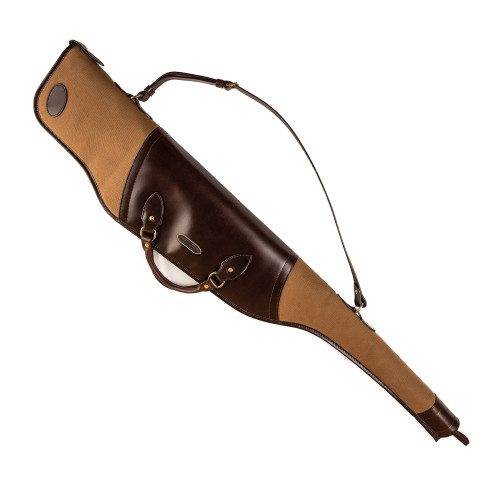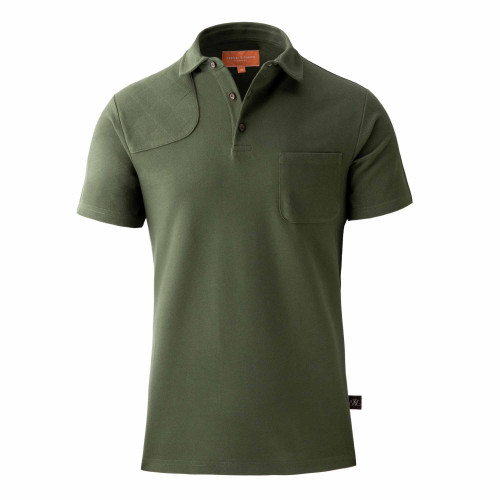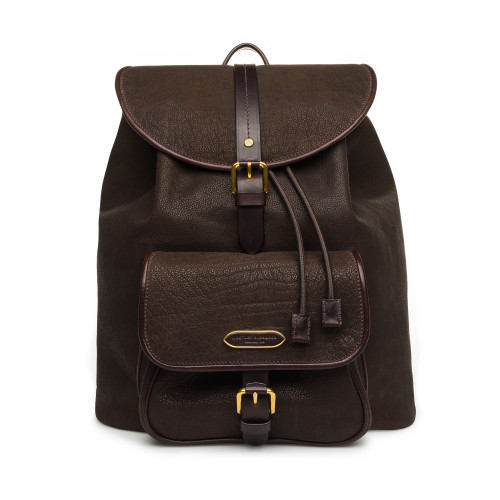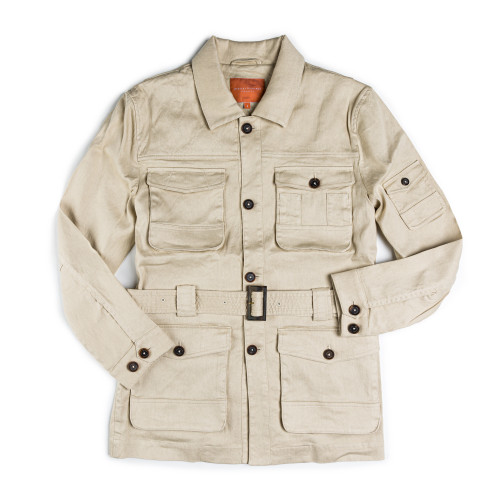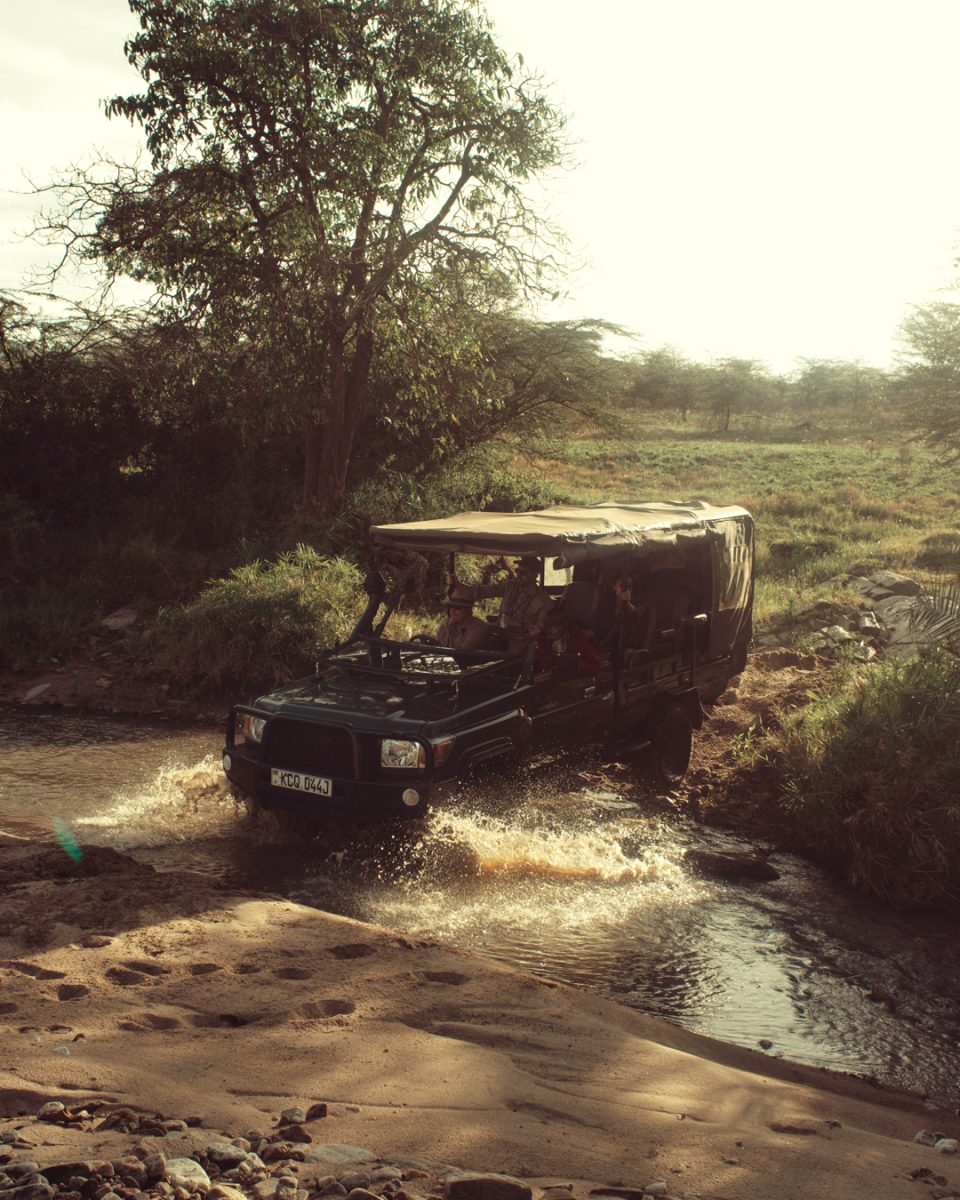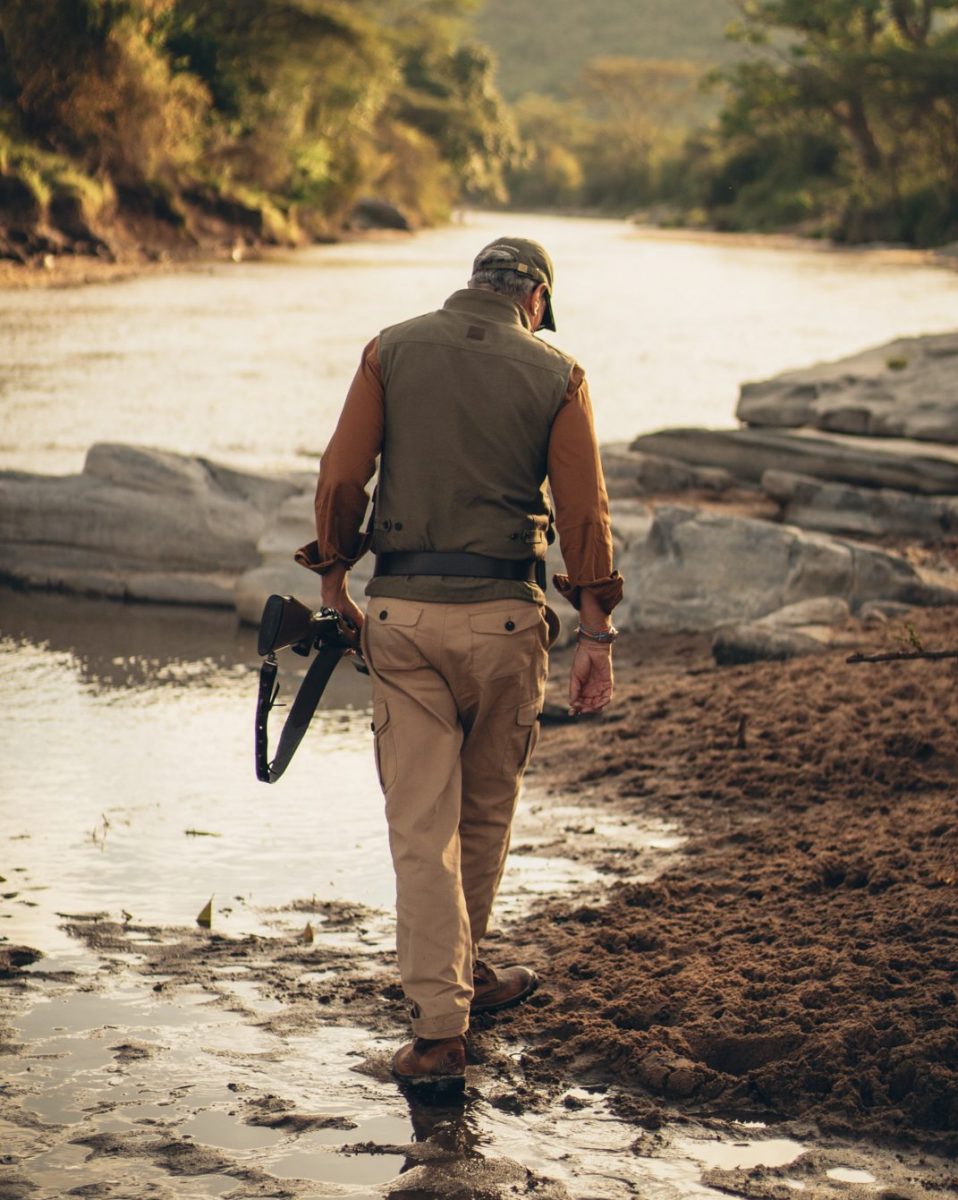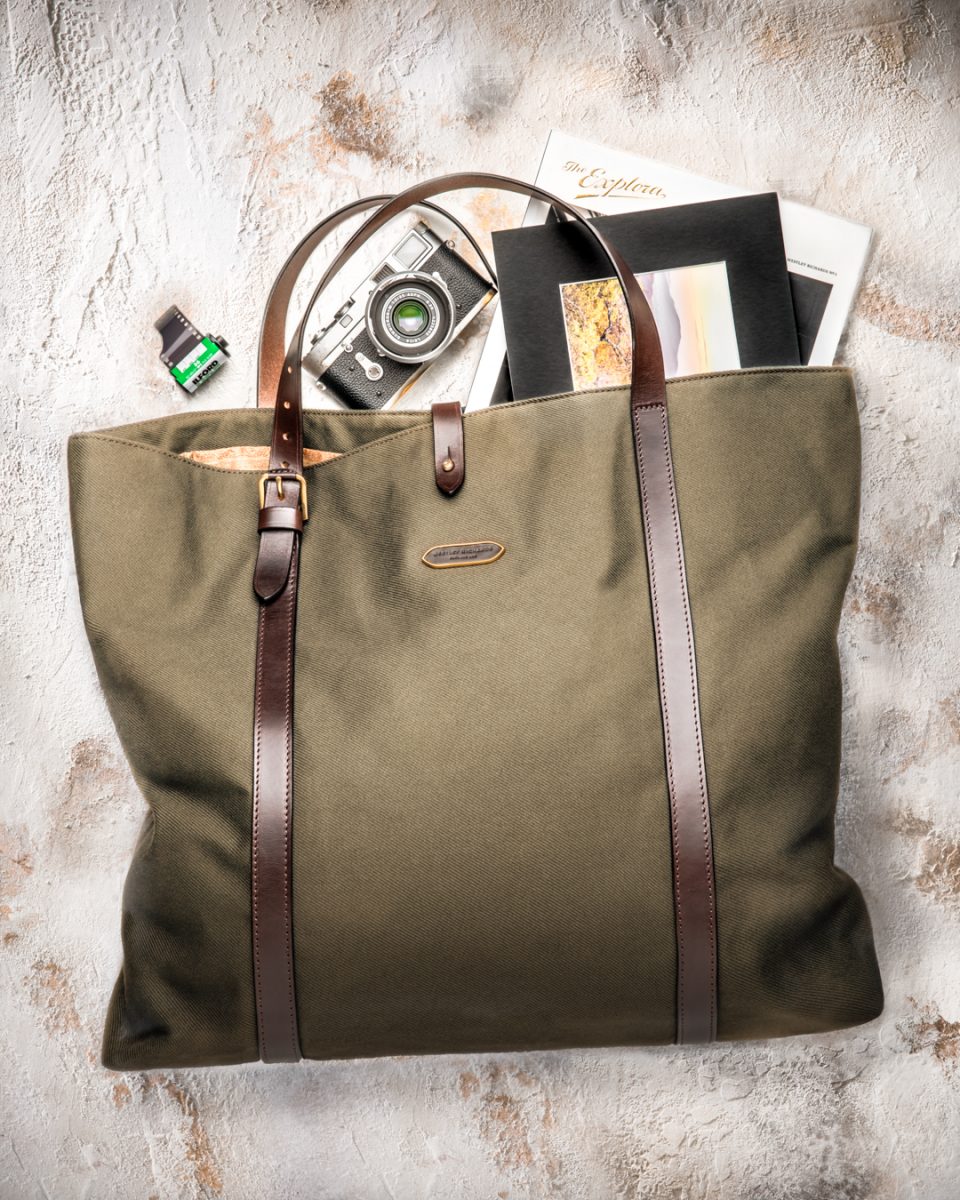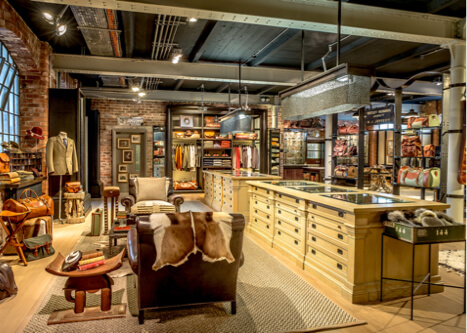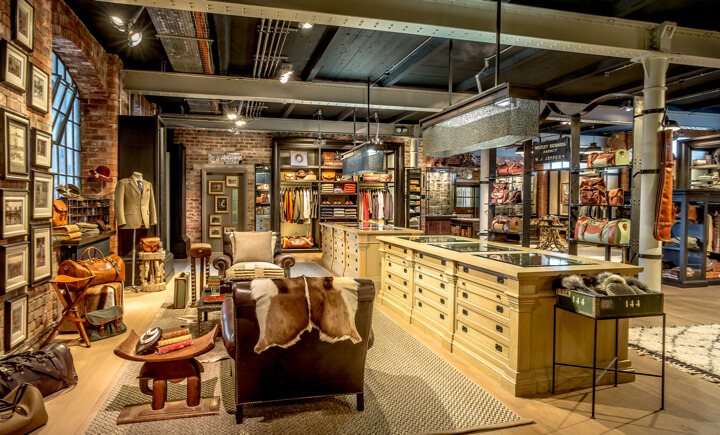The invention of Cordite
Originally developed and patented for a British government committee to find a replacement for gunpowder, Cordite is a spaghetti-like propellant that consists of nitroglycerin, nitrocellulose (known as guncotton) and petroleum jelly.
Not long after its introduction firms like Westley Richards & Co. and J. Rigby & Co. loaded popular Black Powder cartridges with Cordite, the .500 3” NE and the .450 3 ¼” NE respectively, creating the first Nitro Express cartridges.
“Nitro Express” Cartridges
The “Nitro Express” designation helps differentiate them from their blackpowder predecessors. The “Nitro” comes from the presence of the nitroglycerine and nitrocellulose in the Cordite. The “Express” is borrowed from a term coined by James Purdey the Younger in the 1850’s comparing the velocity and power of his then newly designed sporting rifles to that of one of the fastest and most powerful machines on earth at the time.
The .450 3 ¼” Nitro Express was invented by John Rigby in 1898 and, along with Westley Richards’ .500 3” NE, it was one of the very first nitro express cartridges. It was based on the .450 Black Powder Express case and loaded with 70grs of Cordite to push a 480gr, .458” caliber bullet at 2,150 fps.
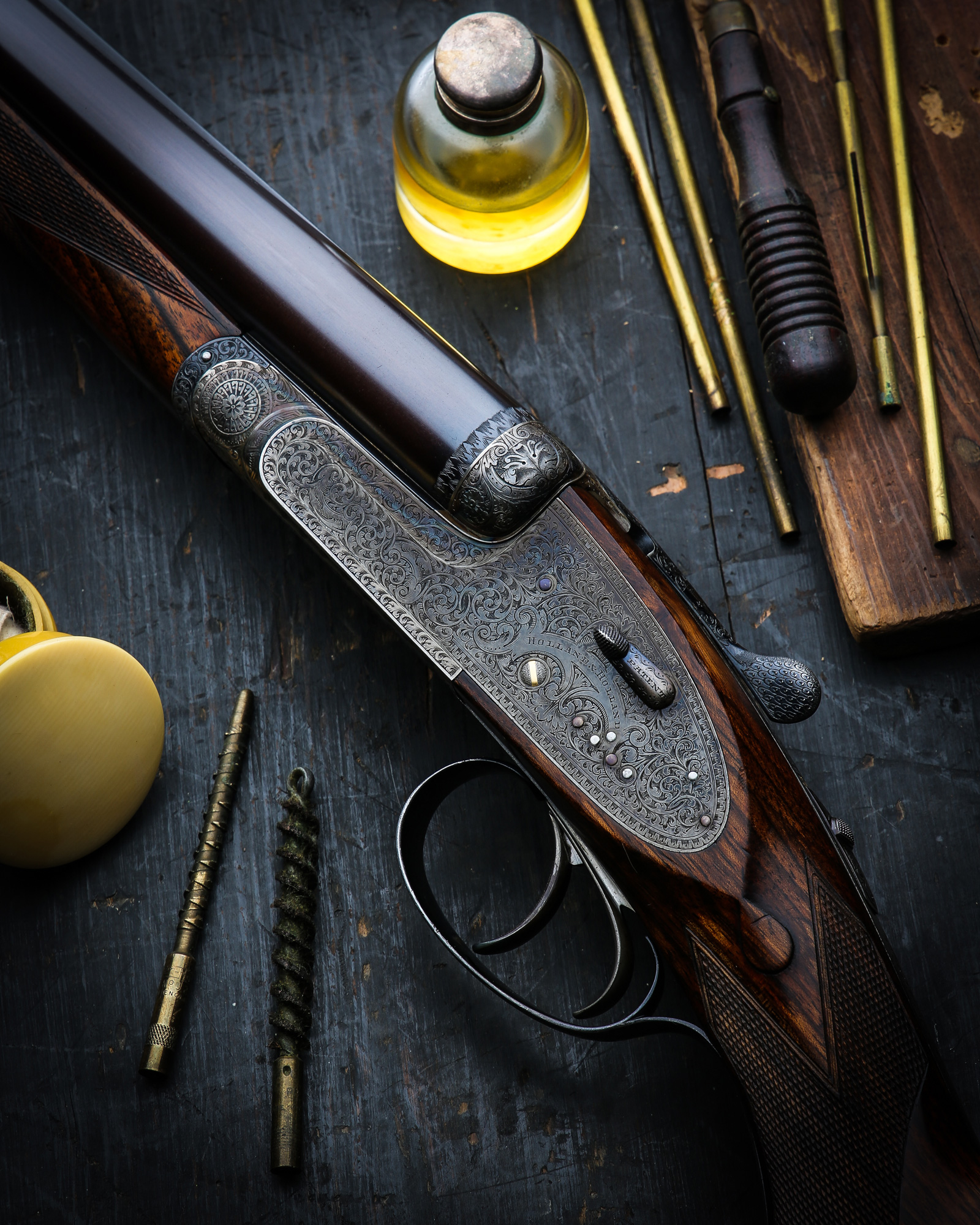
Holland’s Answer to Rigby’s .450 3 ¼” NE
The early version of Rigby’s .450 NE used brass originally intended for the relatively low pressures generated by blackpowder but proved to be too soft for the spike in pressures experienced when shooing nitro-based propellants. With these “hotter” nitro loads, the brass would over expand in the chamber and stick there, causing the spent case to be difficult to remove. Kynoch addressed this by using a reinforced brass case. Kynoch also offered “tropical” loads which were reduced loads that accounted for the hot sun and warm environments these cartridges were often used in and that also contributed to higher chamber pressures. The problem was solved and the .450 3 ¼” NE quickly became benchmark for big game cartridges finding the perfect balance between weight and recoil of the rifle vs its terminal performance on large, dangerous game.
But, not letting an opportunity to better one’s competitor slip by, Holland & Holland introduced their own .450” caliber cartridge to address the early shortcomings of Rigby’s .450 NE. Holland’s also used a popular black powder express cartridge as a parent case but turned to the larger .500/.450 Magnum Black Powder Express case. The larger case capacity allowed the same ballistics as the .450 3 ¼” NE but its extra volume helped reduce chamber pressures. This resulted in H&H’s .500/.450 NE, the same cartridge Theodore Roosevelt’s Holland & Holland Royal was chambered for and that he used on his famous 1909 safari.
The Arms Race of 1907
Holland’s .500/.450 NE was a very successful cartridge for Holland’s, but Rigby’s .450 3 ¼” NE was the most popular and widely used cartridge for dangerous game in the first years of the 20th century. However, in 1907 sporting rifles in caliber .458” were prohibited by the British government from being imported to India and the Sudan, in the supposed efforts to keep these common military caliber components out of the hands of those opposed to British rule. Coincidentally, India and the Sudan were where much of the big, dangerous game was hunted and when the import of the most popular cartridges used in these areas was banned, it created new marketing opportunities for many of Britain’s top rifle and ammunition makers. Holland & Holland, Westley Richards & Co., and Eley all introduced notable big game cartridges with ballistics very similar to the .450 3 ¼” but with bullet diameters other than .458” caliber. Most notably Joseph Lang invented the .470 3 ¼” NE which is the most popular big game round for modern double rifles.
The New .500/.465 NE
The .500/.450 NE was very popular for Holland’s but the banning of the .450 caliber rifles forced the firm to develop something new. Using the same parent case and bullet weight as the .500/.450 NE, but loaded with a .467” diameter bullet, the new cartridge also had velocities of 2,150 but was impossible to fire in the older rifles. In Holland’s marketing this cartridge was called the .465 India with obvious references to the U.K.’s ban. This is one of the great cartridges used during the golden era of safari and remains a very viable cartridge today for big game hunting, being Holland & Holland’s most popular double rifle chambering. Today the cartridge is simply known as the .500/.465 NE and noted in a way common among British makers showing the parent case first and the bullet diameter second.
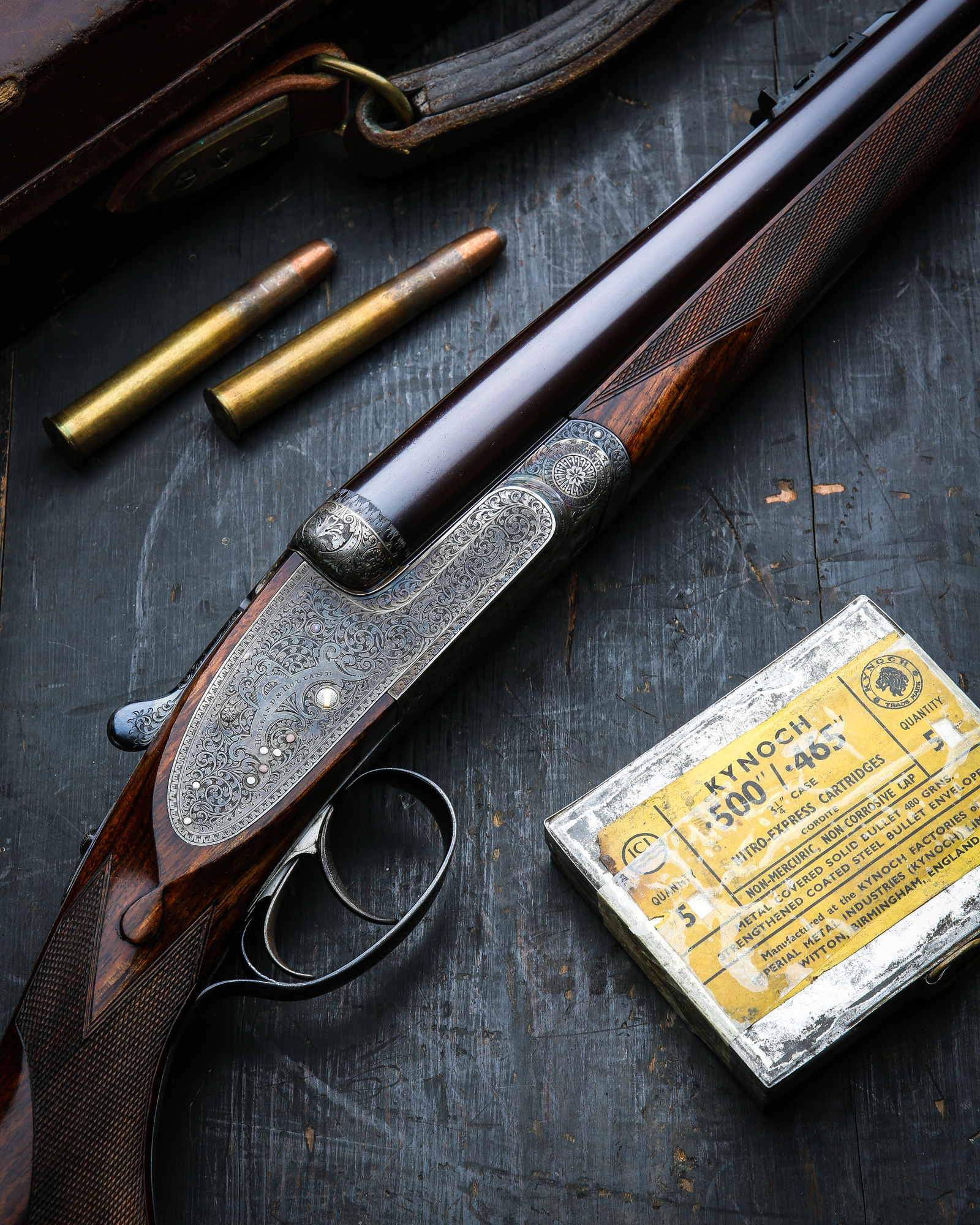
Available now at the U.S. Agency is this between-the-wars Holland & Holland .465 Bore (.500/.4645 NE) “Royal Ejector” Model Double Rifle completed in 1928. The rifle is built on Holland’s timeless back-action sidelock ejector with an extended top strap, Holland's patented hand detachable locks, hidden third bite, disk set strikers, two triggers (front one hinged), a rolled guard bow with a long tang, and a manual safety.
Wonderfully executed “Royal” engraving surrounding the Maker's name with the spots of a peacock feather engraved on the left side of the top lever for texture. "Royal Ejector" is engraved on the bottom of the action, the cocking indicators are lined in gold, and "SAFE" is also inlaid in gold.
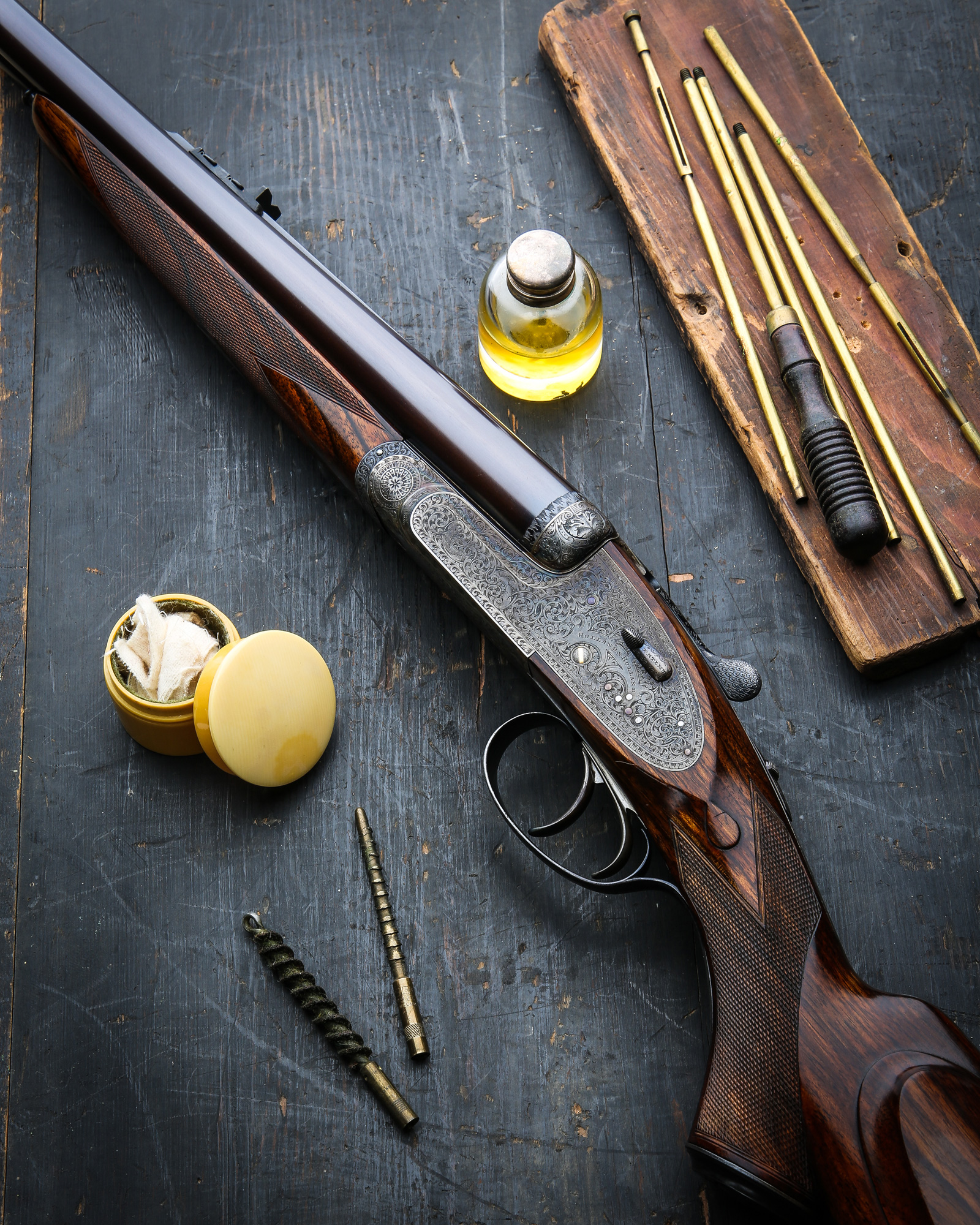
The original 26" chopper lump barrels are fitted with Holland's patented ejectors and hidden third bite. Top rib has a stippled and sculpted quarter rib with 1 standing/2 folding (50, 200, 300 yds) that are lined in platinum. Ramp foresight has thin sight blade and flip up night sight. The bores remain excellent and have original London proof marks.
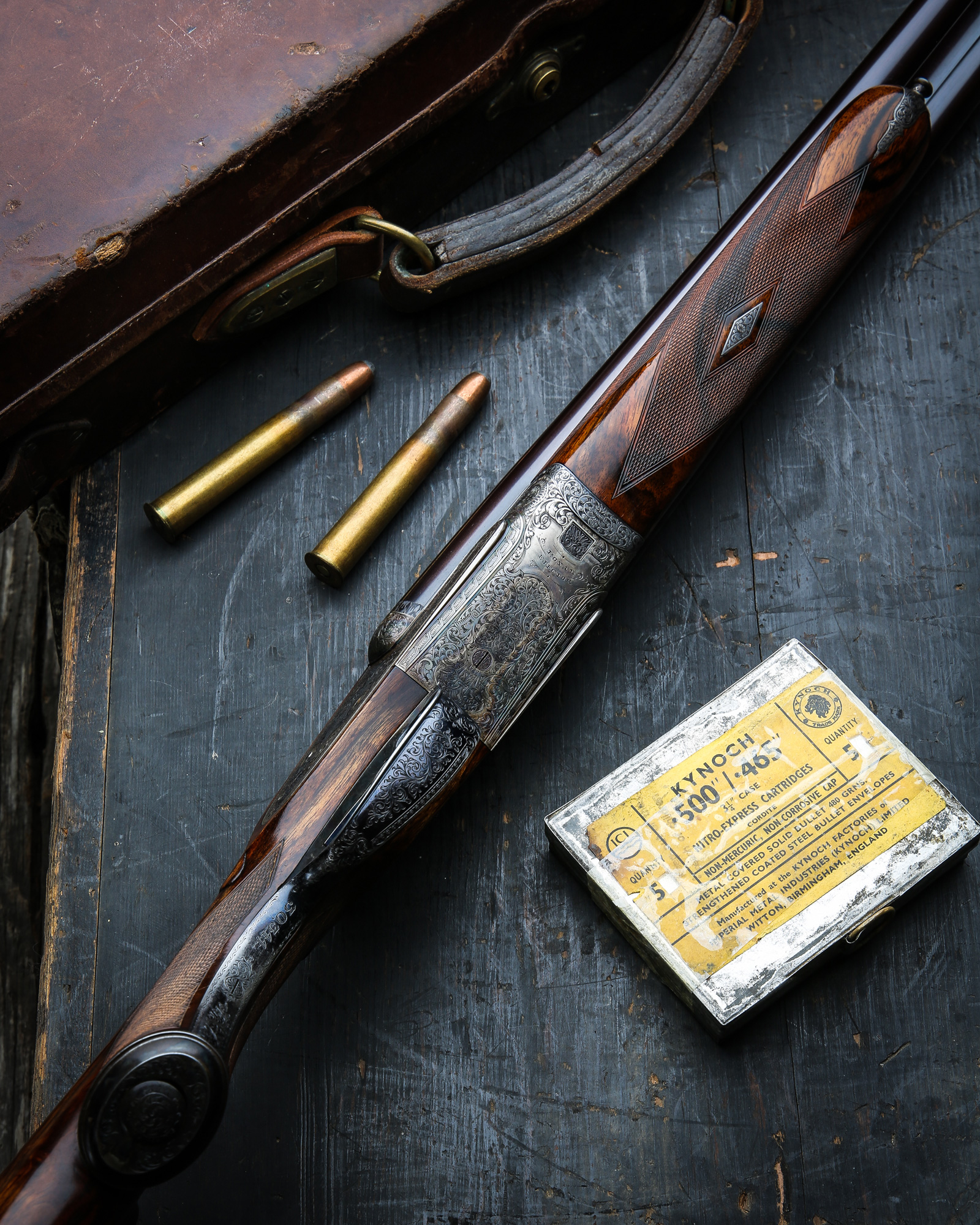
The full pistol grip stock has a right hand, beaded cheekpiece with a full pistol grip, traditional drop points, blank stock oval, sling swivel on the toe line, and trap door grip cap still containing original spare foresight, serial numbered to the rifle, is in the trap. Splinter forend has Anson push rod release and rifle has a 14 15/16" LOP over a black rubber recoil pad.
The rifle is complete in its original lightweight leather case.
Rifle remains in excellent overall condition with much of its original color remaining on the action and original black on the furniture. Barrels have scope mount holes on quarter rib that were professionally filled, and rib refiled, barrels re-blacked, and the stock refinished, and rubber recoil pad added. All work was done by Holland & Holland.
A “golden era” big game double rifle in the maker’s iconic proprietary cartridge, it is a wonderful example of one of the world’s most iconic double rifles.
This rifle, along with a host of others, can be viewed at our website for pre-owned guns and rifles. All inquiries are welcome.
https://www.westleyrichards.com/usedguns/
Westley Richards has an outstanding reputation for supplying a comprehensive selection of pre-owned guns and rifles. We pride ourselves on our in depth knowledge of the many sporting arms built over the last 200 years, placing particular emphasis on big game rifles, like the 577 Nitro Express, 505 Gibbs and 425 Westley Richards. Whether looking to grow or sell your collection of firearms, or simply require a trusted evaluation, our team from the sales department would be delighted to hear from you. To view the latest available, head to the used shotguns and used rifles pages, and for those interested in new firearms, explore our custom rifles and bespoke guns pages.

